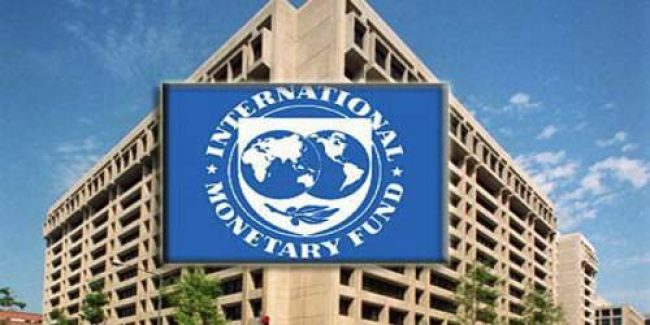

The International Monetary Fund (IMF) has slashed its forecast for Nigeria’s economic growth in 2024 to 3.1 per cent.
The downgrade is contained in a newly released report ‘in the July 2024 World Economic Outlook’ published Tuesday.
The IMF attributed its new forecast to a weaker growth recorded in the first quarter of the year, Q1’24, as a reason for the latest estimates.
The cut represents 0.2 percentage points below the earlier forecast of 3.3 per cent.
Read Also: Magnitude 4.7 Earthquake Jolts Nairobi Outskirts
The downgrade followed weaker-than-expected Gross Domestic Product, GDP, and growth recorded by the country in Q1’23.
The IMF, however, retained its 3.0 per cent forecast for Nigeria’s economic growth in 2025.
It would be recalled that data from the National Bureau of Statistics (NBS) showed that Nigeria’s Gross Domestic Product (GDP) growth dropped, quarter-one, Q1, to 2.98 per cent in Q1’24 from 3.46 per cent in the fourth quarter of 2023, Q3’23.
As a result of the lower forecast for Nigeria’s economic growth, the IMF also downgraded its forecast for Sub-Saharan economic growth in 2024 to 3.7 per cent from the April WEO forecast of 3.8 per cent. It, however, raised its economic growth forecast for the region in 2025 to 4.1 per cent from 4.0.
“The forecast for growth in sub-Saharan Africa is revised downward, mainly as a result of a 0.2 percentage point downward revision to the growth outlook in Nigeria amid weaker than expected activity in the first quarter of this year,” the IMF said.
For the global economy, the IMF retained its growth forecasts of 3.2 per cent in 2024 and 3.3 per cent in 2025.
The IMF said: “The Global Economy in a Sticky Spot Global growth is projected to align with the April 2024 World Economic Outlook (WEO) forecast, at 3.2 per cent in 2024 and 3.3 per cent in 2025.
“However, varied momentum in activity at the turn of the year has somewhat narrowed the output divergence across economies as cyclical factors wane and activity becomes better aligned with its potential.
“Services price inflation is holding up progress on disinflation, complicating monetary policy normalisation. Upside risks to inflation have thus increased, raising the prospect of higher-for-even-longer interest rates in the context of escalating trade tensions and increased policy uncertainty.
“To manage these risks and preserve growth, the policy mix should be sequenced carefully to achieve price stability and replenish diminished buffers.”
The development comes on the heels of Nigeria’s inflation figure reaching a new high, hitting 34.19 % for June 2024, according to the latest data from the NBS.
This is an increase of 0.24% compared to the inflation figure for May 2024 released by the NBS.





















